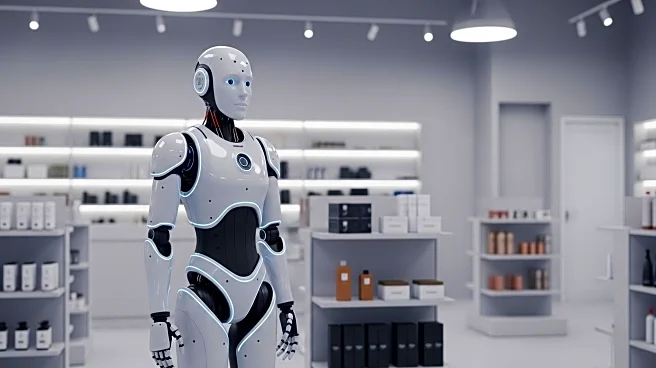What's Happening?
Walmart reportedly listed the Unitree G1 humanoid robot for sale on its website, priced at $21,600, according to screenshots shared online. The listing, which included free shipping and a limit of six units per customer, has since been removed, leading to speculation about whether it was a genuine offer or a PR stunt. The Unitree G1, developed by Chinese robotics company Unitree, is capable of walking and performing limited tasks but is not yet able to replace human labor. The incident has sparked discussions about the potential for humanoid robots to become mainstream consumer products.
Why It's Important?
The potential sale of humanoid robots by a major retailer like Walmart signifies a possible shift in consumer technology, where robots could transition from industrial and research settings to everyday consumer use. This development could impact various sectors, including retail, technology, and consumer electronics, by introducing new products and altering consumer expectations. If humanoid robots become accessible to the general public, it could lead to increased interest and investment in robotics, driving innovation and potentially changing the landscape of consumer technology.
What's Next?
While the Walmart listing has been removed, the conversation around humanoid robots in retail continues. If Walmart or other major retailers decide to sell such products, it could lead to broader acceptance and integration of robotics in daily life. Stakeholders, including tech companies, retailers, and consumers, may need to consider the implications of humanoid robots in terms of ethics, privacy, and societal impact. Future developments could include more retailers exploring the sale of advanced robotics, potentially leading to regulatory discussions and new market opportunities.
Beyond the Headlines
The incident raises questions about the readiness of society to embrace humanoid robots as consumer products. Ethical considerations, such as privacy and the role of robots in human life, may become more prominent as technology advances. Additionally, the cultural impact of humanoid robots entering mainstream retail could influence perceptions of technology and its role in society, potentially leading to shifts in consumer behavior and expectations.












